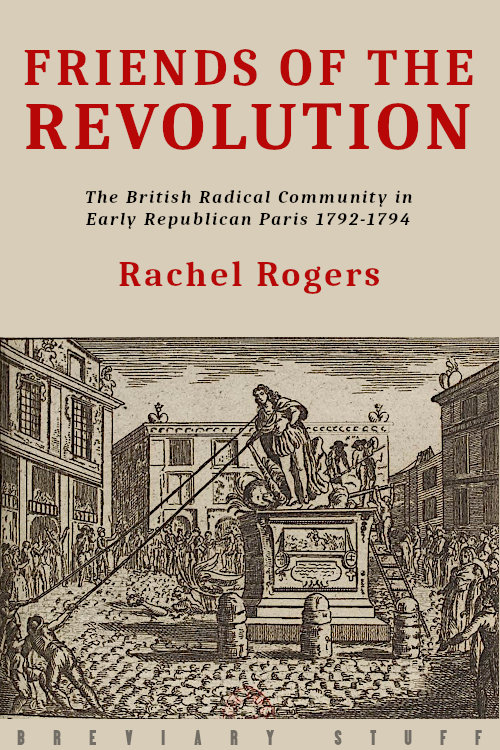- About the Author
- Abbreviations
- Acknowledgements
- 1 The ‘man without a country’? Assessing the British radical community in early republican Paris
- 2 ‘In defence of their rights’: British reactions to the popular revolution of 10th August 1792
- 3 British emigration to early republican Paris in 1792-1793
- 4 Professional lives and projects of British residents in Paris
- 5 La Société des Amis des Droits de l’Homme: A political association at White’s hotel
- 6 Revising the monarchical constitution of 1791: The writings of Joel Barlow and David Williams on the new republican constitution
- 7 ‘A state of permanent popular deliberation is indispensable’: The constitutional writings of Robert Merry, John Oswald and George Edwards
- 8 British experience in Paris under emergency rule, 1793-1794
- 9 Sketchers of Revolution: Eyewitness histories
- 10 ‘It would be rash to hazard any prediction of the future’: The historical accounts of Helen Maria Williams and Mary Wollstonecraft
- 11 ‘A spectacle worthy of heaven and earth’: Sampson Perry’s An Historical Sketch of the French Revolution (1796)
- 12 British Girondins?
- Appendices
- Map of Paris Showing the Location of White’s hotel
- Short Biographies of British Politicians mentioned
- Short Biographies of Revolutionary Leaders mentioned
- Glossary of Revolutionary Terms
- Timeline of Key Events in Britain and France, 1792-94
- Engravings from contemporary editions of the newspaper Révolutions de Paris
- Title Pages of Tracts and Pamphlets by British Observers
- Some Extracts from Manuscript Sources
- Signatories of the SADH Address to the National Convention, 24th November 1792
- Prison records for British residents of Paris
- Extract from La Chronique du Mois; ou Cahiers Patriotiques
- Bibliography
- Index
Rachel Rogers – Friends of the Revolution
£17.00
A number of British men and women with radical sympathies and links to the domestic reform movement travelled to Paris after 1789 to witness the events of the French Revolution. Many remained in residence or were prompted to visit the French capital with the fall of monarchy and establishment of a republic in late 1792.
The British visitors who took part in and wrote about the debates animating the first French republic have received little attention in historical enquiry. While some studies have focused on noteworthy individuals who lived in Paris in the early 1790s, the collective endeavours of British nationals have gone under the historical radar.
British residents set up an emigrant political society in late 1792, based at White’s hotel in the second arrondissement, under the name of the Société des Amis des Droits de l’Homme. The SADH was a hub of international political culture and served as a testing ground for ideas and written production destined for both a British and French audience. From White’s hotel members launched joint writing projects, organised relief missions and contributed collectively to the debate over a new republican constitution at the turn of 1793.
As well as such efforts, British nationals, along with their Irish counterparts on French soil, engaged in common business projects, took joint lodgings in Paris, helped each other with translation and interpreting services and supplied each other with financial assistance at times of severe hardship when many were incarcerated in makeshift prisons across the city. Some negotiated passports for fellow nationals out of Paris, or convinced the French authorities to allow their country men and women to remain in the capital. Many struck up binding links with local activists in the Paris sections or with figures in the revolutionary administrations which shaped their outlook on the Revolution.




